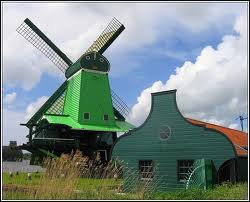Green energy could be cheaper than traditional say lying bastards at DECC
 GREEN energy could be cheaper than traditional. That’s what the DECC (Department of Energy and Climate Change) would have us believe. Look, there’s the press release faithfully typed out in The Guardian to prove it.
GREEN energy could be cheaper than traditional. That’s what the DECC (Department of Energy and Climate Change) would have us believe. Look, there’s the press release faithfully typed out in The Guardian to prove it.
Every person in Britain will need to pay about £5,000 a year between now and 2050 on rebuilding and using the nation’s entire energy system, according to government figures. But the cost of developing clean and sustainable electricity, heating and transport will be very similar to replacing today’s ageing and polluting power stations, the analysis finds.
The forecasts come from a unique open-source analysis package, called the 2050 pathways calculator, which was created by Professor David MacKay, chief scientific adviser to the Department of Energy and Climate Change.
The predictions challenge suggestions that the costs of embracing low-carbon energy and meeting the UK’s legally binding commitments to tackle global warming will be higher than the bill would be for using traditional energy sources. They are also supported by a major EU project that found developing renewable energy was no more expensive than alternatives.
It’s all really rather amazing. For we know that renewable energy is more expensive than fossil fuel. We know that solar is more expensive than coal, wind is intermittent and we thus need to have gas plants up and ready to run to replace it and….well, just how can we have a cheaper energy system if all the bits we’re using to build it are more expensive?
So, I’ll let you into the secret. We do this by lying with numbers. Here, from the actual site:
The total energy system cost of tackling climate change could be similar to doing nothing and may even be cheaper than remaining fossil fuel dependent (even if fossil fuel prices are not high). For example, taking action could save £84/person/year over the next forty years based on a pathway from the cost-optimising model, MARKAL. In the MARKAL pathway, energy use per person in 2050 is half today’s levels; around three quarters of this is due to uptake of more efficient technologies.
That’s how we do it: we simply assume that everyone’s going to use half as much energy in the future. Well, OK, I can do that too. Assume that everyone is going to use half the energy, hey, the cost of our energy system has halved then!
But do note that’s not what actually happens on our new, cheaper, path. Actually, we all use 50% of the energy but the costs only decline by 1.6% (£84 a year out of £5,000). That’s not what we normally think of as cheaper really. In fact, that’s what we normally think of, with a bit of rounding, as twice the price.
That is, they’re lying to us with numbers again. The Bastards.
Posted: 30th, December 2011 | In: Reviews Comment (1) | TrackBack | Permalink


